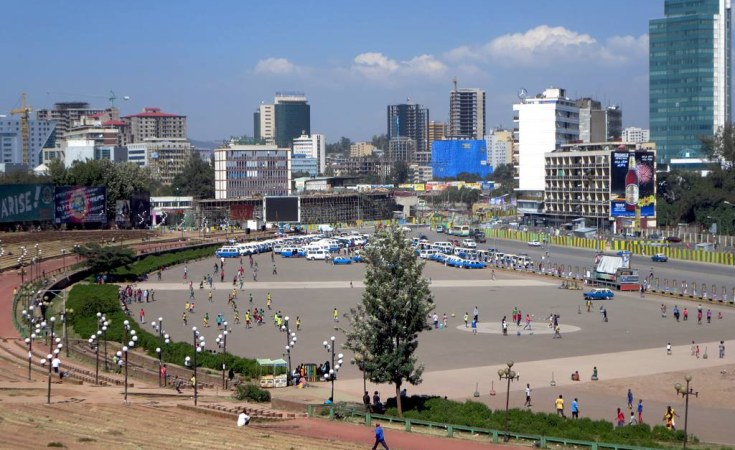Ethiopia is undoubtedly the economic giant of the Horn of Africa. Since time immemorial, the economy has experienced growth as indicated by its gross domestic product (GDP), gross national product (GNP), and per capita income.
Growth projections are one of the key measures of a growing economy. In this, Ethiopia has shown tremendous progress and a promising trend. However, both foreseen and unforeseen factors have come into play, altering the growth rate pattern. Think of the war between Tigray and Ethiopia and the COVID-19 pandemic, and you will see some of the hindrances to Ethiopia's awakening as an economic giant.
It is unavoidable to look at the key growth indicators and the human development index to evaluate how far the country has gone in terms of growth. It is good to ask ourselves how the country is fairing in terms of investments, gross domestic product, consumption, international trade, and stability. These factors play a key role in determining the human development index (HDI). Ethiopia has seen a slow but consistent growth in HDI, which is encouraging.
Without focusing much on how the country is doing, we must ask ourselves what can be done to improve the economy. What strategies can it adopt to ensure growth?
A menacing trade imbalance
An imbalance of trade, also known as a trade deficit, occurs when a country imports more than it exports, implying that a country spends more on buying while earning less by selling its products to the outside world. The trade deficit is one that Ethiopia should fight.
At the moment, most of the country's high-value goods, such as machinery, vehicles, fertilizers, iron, and, ironically, cereals, are brought in from other countries. On the other hand, it exports coffee and leather products, among others. From this list, we can always tell that the economy spends more on buying while the income it generates from its exports is not equal to the purchasing expenditure.
An imbalance of trade will inherently result in low job creation and high unemployment, eventually negatively affecting the economy. Minimizing imports does not mean foregoing basic commodities. No, it means being creative enough to produce what they can and substitute some imports. This will leave the economy with a good amount of disposable income that could go into social services.
Creating jobs and fighting unemployment
The relationship between economic growth and employment remains a complex one. However, many studies have been done to explain how they correlate. Besides, theories have been advanced to highlight their linkage.
People have money to spend when employed, which makes businesses flourish according to the Keynesian multiplier theory, named after John Maynard Keynes, a British economist. Eventually, the growth of businesses results in the creation of more jobs and, hence, economic growth.
In 2021, studies showed that about 2.07 million people were unemployed in Ethiopia. The number rose to 2.35 million in 2022 and could go up further. Job opportunities through formal or informal employment will positively impact Ethiopia's economy since employment and job creation reduce the crime rate, a major enemy of economic growth in any African country.
Improving access to finance
With unemployment rates going up in many African countries, giving people the tools they need to find work is important. One way of doing this is by giving them financial prowess and supporting their courses and innovations.
To help small businesses, the Ethiopian economy should make it easier for people who don't have access to money to get it. This points to providing credit and loans to people at affordable interest rates and supporting women, youth, and those with disabilities. By offering people credit, the government empowers them and gives them the leeway to become more creative, create jobs, and contribute positively to economic growth.
Offering incentives to attract venture capital investors, encouraging equity, and financing businesses with performance-based loans encourage an entrepreneurial culture. This is one thing that the government should consider doing.
The ease of doing business index
The ease of doing business refers to starting a business in a country. There are many factors considered in this index, starting with business registration, licenses, and compliance, as well as payment of taxes.
When a country makes it easier for businesses to do business, it attracts foreign investments, spurs innovation, and eventually creates jobs for its own people. In a 2020 ranking for countries and ease of doing business, Ethiopia ranked 168 out of 190 economies. In the long run, this could discourage investors, make it harder to create jobs, and derail economic growth.
There should be consideration given to the ease of doing business. Let the requirements and the compliances be easy to attract investments while policies remain accommodative and welcoming.
Add value
How developed, developing, and underdeveloped countries trade is one of the most interesting things I've seen on the world's markets. Developing countries like Ethiopia will mostly export coffee and leather to other countries. When that is done, the country receiving the coffee will then add value and sell it to other countries at a higher price.
If Ethiopia could find the means, it could export more refined products, adding value to them, and sell them for far better prices, spurring economic growth.
There is more that can be done for Ethiopia's economy. It is a sleeping giant with vast potential, and with the right policies and measures, it may go beyond its limits to rank among the best in Africa and beyond.
Shana Gourdine works for Meklit Wisdom Center.


